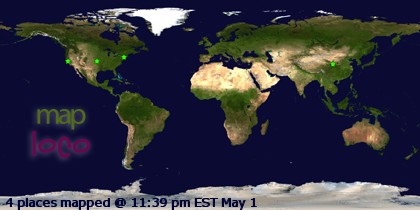The “Our Fair Share” report of the Alberta Royalty Review Panel has hit the public domain; you may have seen the response to it from various industry players and market analysts. Those of you who read this who are not in Calgary and the oil industry may be wondering what all the fuss is about.
I am uniquely qualified to offer some comments and observations on the topic. Why? Because for much of my 27 year career, I have worked comparing investments in other areas of the world to Canada, including virtually all countries in Latin America, the North Sea, offshore Africa and even Australia. I know what investment criteria are used, what costs have done, how projects are compared in a global company and how they compare. My experience comes from Exxon, from ConocoPhillips, from Gulf, from BG and now from Hunt Oil. I have assessed political risk, seen projects virtually nationalized away in Venezuela, and seen $9 and $90 oil.
Let me start this post with some of the underlying questions of what “our fair share” is, and whether royalties could or should rise.
Understand that a royalty/tax system is only one of a few basic types of petroleum fiscal systems. Under this system, royalties represent the portion of the take the government gets for the resources it owns. The government spends no money and takes no risk to access these resources, but since the resources are owned by the government in the first place, companies pay a royalty. Government take also includes the taxes we pay on the profits we make. So in a Royalty/Tax system, companies give the government a chunk of gross revenue up front, then a chunk more based on profitability. Imperial Oil, for instance, paid 904 MM$ in royalties plus income taxes of 1,056 MM$ in 2006.
So could royalties rise? That’s the equivalent of asking if taxes, like your personal income tax, could rise. Of course the answer is yes, and governments have been increasing taxes for years based on that premise. Do you like your taxes rising? Of course not, even when governments claim the increase is to pay for a program you want. So long as companies have profit, the government can increase their take of that profit. The consequence of that action is that companies can choose to spend less, sell out and leave, argue against the change – in short, what is happening now. EnCana and PetroCanada are two who have said they will spend less; Crescent Point is leaving Alberta and investing only in Saskatchewan.
What constitutes “fair” then? The Review Panel themselves don’t know. There’s 179 references to the word “fair” in the document, and only a brief note of the subjectivity of the word. I’ve always said that if the government was a charity, I’d donate for all the good work they do. What’s a “fair” donation? Alberta is currently running a 2,000 MM$ surplus, collecting a little over 10,000 MM$ in royalties alone from the industry. The flawed math in the report (more on why it’s flawed in a post or two) would increase that to 12,000 MM$. In total, the government currently collects about 24,500 MM$ from industry in royalties, taxes and land sale monies. To be frank, even though our provincial infrastructure is in a state of declining repair, the best the government can figure out to do with all this money is issue $300 cheques to everyone. I personally fail to see the need for the government to get 2,000 MM$ more when it can’t even figure out what to do with what it gets now. We could have the best teachers, the best hospitals, the best universities, the best transportation systems, the best public transit infrastructure, the lowest personal income tax rate, but the government would prefer to give everyone $300.
Another way to look at “fair” is what’s a fair income tax rate? Royalties and taxes are both general government revenues. Why don’t you tell me what a fair personal income tax rate is?
In short, one of the fundamental premises of the report is inherently flawed and arm waving – that Albertans aren’t getting their fair share, since there is no such thing.
Next post: Alberta as a third world country.
Tuesday, 9 October 2007
Subscribe to:
Post Comments (Atom)


1 comment:
Thank you - I have been trying to find more out about it ... I look forward to your future posts! I agree - I can't believe they issued everyone $400 cheques.
Post a Comment